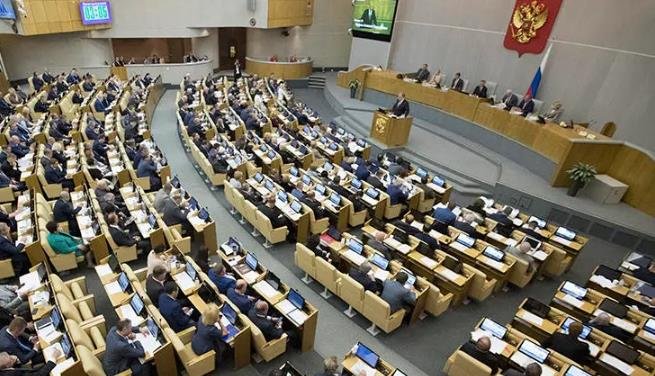The State Duma of Russia, the lower house of parliament, has started to replace the foreign operating system (OS) Windows and the office suite Microsoft Office with domestic alternatives, local media reported on Monday. The switch to domestic software comes after Microsoft Corporation announced on March 4, 2022 that it was leaving the Russian market, suspending sales of products and services in Russia due to events in Ukraine.
The State Duma purchased 1,800 licenses of Astra Linux OS and MyOffice suite for the deputies and administrative staff of the parliament, Russian newspaper Saint-Petersburg Vedomosti reported. The total cost of the purchase was around 52.5 million rubles (536,000 U.S. dollars).
Astra Linux OS is a Russian-made operating system, and MyOffice is the largest Russian developer of office software solutions. Both products are certified by the Federal Service for Technical and Export Control (FSTEC) of Russia, which means they meet the requirements of information security and data protection.
Currently, four departments of the State Duma have already switched to the new software, and the rest of the apparatus will follow suit, the report said.

A step towards digital sovereignty and independence
The transition to domestic software is part of Russia’s efforts to achieve digital sovereignty and independence from foreign influence. In recent years, Russia has been developing its own internet infrastructure, such as the sovereign Runet network, which can operate independently from the global internet in case of external threats or disruptions.
Russia has also been promoting the use of domestic software and hardware in various sectors, such as education, healthcare, defense, and public administration. According to a decree signed by President Vladimir Putin in 2019, state institutions and state-owned companies must use at least 90% of domestic software by 2024.
The State Duma’s decision to switch to domestic software is also seen as a way to support local developers and stimulate the growth of the domestic IT industry. According to a report by the Russian Association of Software Developers (RASD), the market share of domestic software in Russia increased from 15% in 2014 to 34% in 2020.
A challenge to compete with global giants and meet user needs
Despite the advantages of using domestic software, there are also some challenges and drawbacks that need to be addressed. One of them is the compatibility issue with foreign software and formats, which may cause difficulties for users who need to exchange files or communicate with external partners.
Another challenge is the quality and functionality of domestic software, which may not match or surpass those of global giants like Microsoft or Google. Some users may also prefer foreign software due to their familiarity or personal preferences.
Therefore, domestic software developers need to constantly improve their products and services, as well as listen to user feedback and needs. They also need to compete with foreign rivals not only in terms of price, but also in terms of innovation and value.
